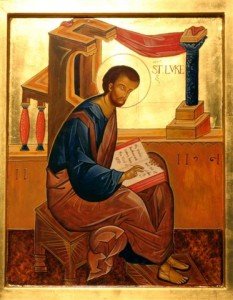 In the last issue of this article, I shared that both the Gospel and Acts present the reaction of townsfolk to Jesus. I already shared how this is presented in the Gospel. In Acts, the theme of rejection by the synagogue and the Jews begins to occur as Paul’s mission to the Gentiles unfolds. Acts reports that the Jews incited people to drive Paul and Barnabas out of Antioch. The same thing occurred in the next city on Paul’s itinerary. The town was Iconium. Then in Lystra this same group of people against Paul actually incited a crowd to stone Paul.
In the last issue of this article, I shared that both the Gospel and Acts present the reaction of townsfolk to Jesus. I already shared how this is presented in the Gospel. In Acts, the theme of rejection by the synagogue and the Jews begins to occur as Paul’s mission to the Gentiles unfolds. Acts reports that the Jews incited people to drive Paul and Barnabas out of Antioch. The same thing occurred in the next city on Paul’s itinerary. The town was Iconium. Then in Lystra this same group of people against Paul actually incited a crowd to stone Paul.
The story continues. Paul was rejected in Thessalonica, Corinth and other places in Greece. Then some Jews from Asia tried to actually kill Paul in Jerusalem.
After Paul’s speech in defense of himself, Jews cried out for Paul’s condemnation and death. He appeared the day after before the council and some people planned to ambush and kill him. In Caesarea, a Jewish lawyer told the Roman governor that Paul was a pestilent fellow, an agitator, and the Jews affirmed the accusation. At a hearing before the Roman governor, the Jews from Jerusalem brought many serious charges against Paul. The whole Jewish community petitioned the Roman governor to execute Paul.
That Acts reports that Paul experienced opposition from some Jews is not itself a reason to propose a late date for the writing of Luke-Acts. Rather, it is the way Acts characterizes Paul’s opposition as the Jews and the synagogue. They are virtually generic terms in Acts.
This suggests that when Acts was written, “the parting of the ways” between Judaism and early Christianity was more than well under way – it had happened. Of course, many Christians during the time of Luke-Acts were Jewish in origin. But the emphasis upon the rejection of Paul and his mission by the Jews suggests that the division into two different religions was occurring. Hence the relatively late date for Acts and thus also for Luke. Most likely, they are from the first two decades of the second century.
What is important to note in all of this is the perseverance of the early Christians and Apostles in attempting to spread knowledge of Jesus. It is truly phenomenal. The early Church was so very vibrant. Even persecution did not stop the early Christians witnessing to Jesus Christ. Unfortunately, today it seems only that fanatics possess such vibrancy in bearing witness. Why?
